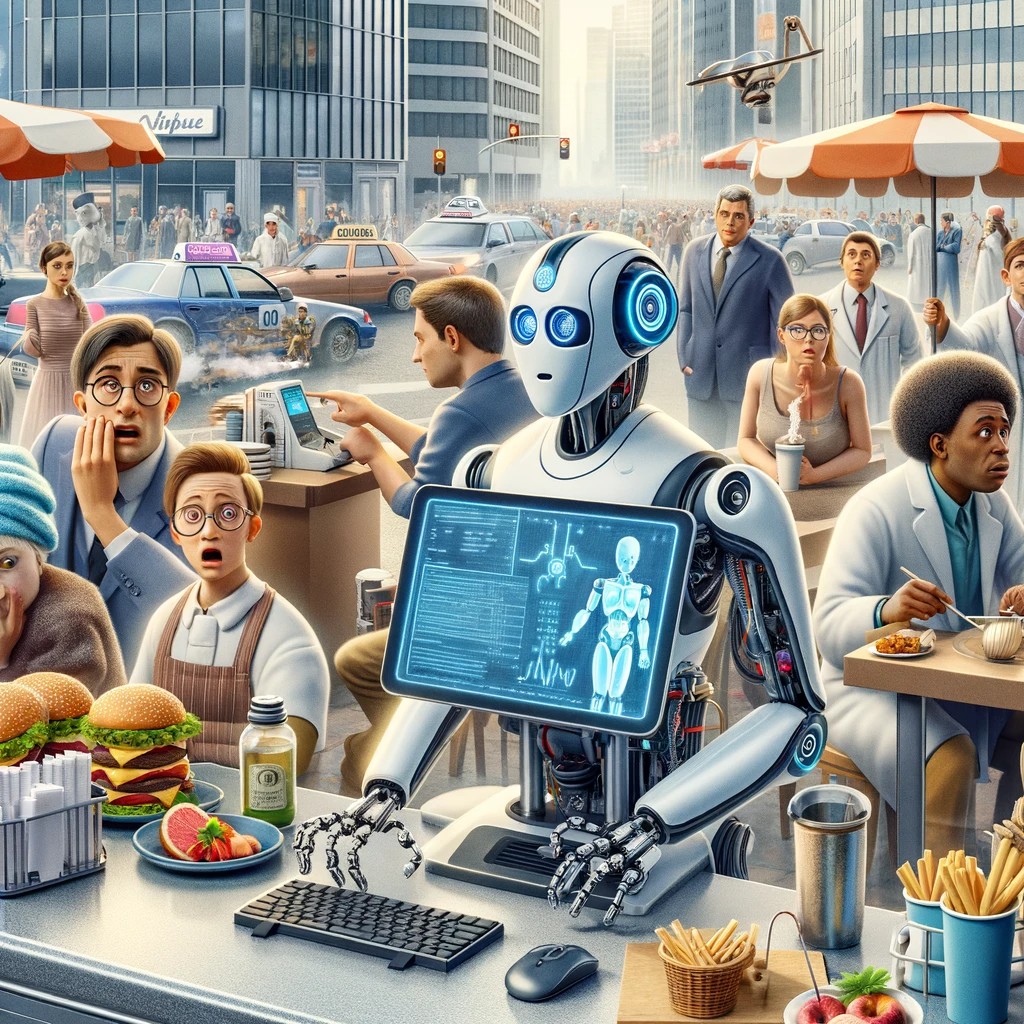
As 2023 recedes into the rearview mirror, a chilling question continues to haunt the corridors of the global workforce: Will artificial intelligence (AI) inevitably steal our jobs? While pronouncements from experts and CEOs offer little solace, recent decisions by tech giants like Google paint a concerning picture. The news of Google’s potential workforce reduction, potentially encompassing 17% of its 170,000-strong workforce, is a stark illustration of this trend.
This unsettling news stems from Google’s growing reliance on AI, particularly in departments like ad sales and customer support. In 2020, Google Ads was a cash cow, generating $147 billion, or a staggering 80% of the company’s total revenue. Enter Performance Max, their AI-powered ad program, boasting an 18% increase in conversions compared to the 13% achieved without AI. This efficiency extends to customer service, where AI chatbots have proven adept at handling inquiries and navigating feedback.
But Google is not alone in its AI-driven workforce metamorphosis. In 2023, the tentacles of AI have stretched far and wide, claiming hundreds of thousands of jobs globally. IBM plans to shed 8,000 positions to AI, while Indian giants like Paytm and Dukan echo the tune. Dukan, for instance, replaced 90% of its support staff with AI chatbots. A chilling U.S. survey further underscores this trend, with 44% of companies anticipating AI usurping some jobs and 37% claiming it has already happened.
However, this narrative of AI as a job-killing juggernaut is only half the story. While it threatens millions of existing positions, it also promises to usher in a wave of new opportunities. The question for individuals, especially students and seasoned professionals, is not “if” AI will change the game, but “how” to adapt and thrive in this new landscape. Educational institutions are taking heed, making AI and data science mandatory subjects, signaling a clear direction for future skill development.
Yet, for those already employed, the mantra remains one of constant learning and upskilling. Relying on corporations for job security, as exemplified by Google’s move despite record profits, is becoming increasingly perilous. This calls for a collective reset as we step into 2024. Parents, educators, companies, and policymakers must re-evaluate their strategies to prepare for an AI-infused job market. The warning signs are flashing crimson, and the time for action is now.
We must delve deeper into the specific roles within sectors like ad sales and customer support impacted by AI, understanding how these roles can be redesigned or augmented for a human-AI synergy. Exploring the impact of AI beyond tech, in industries like manufacturing and healthcare, is crucial to paint a holistic picture. But what about the uniquely human traits, like empathy and critical thinking, that AI struggles to replicate? How can we ensure these remain irreplaceable assets in fields like healthcare, education, and social work?
The ethical implications of AI-driven job cuts cannot be ignored. Companies must prioritize fair redeployment, reskilling opportunities, and adequate compensation for displaced workers. Governments and institutions need to address the potential widening of the socioeconomic gap, with vulnerable populations at heightened risk. Universal basic income or other social safety nets might be necessary as traditional full-time employment models evolve.
In this dynamic landscape, equipping individuals with the right skills is paramount. Lifelong learning, adaptability, and digital literacy are the holy trinity for navigating the AI revolution. Universities, vocational schools, and companies must collaborate to offer relevant training programs and cultivate a culture of continuous learning. Alternative work models, like freelancing, gig economy platforms, and co-operatives, should be explored as potential avenues for meaningful work in the AI era.
Ultimately, the impact of AI on jobs is not a preordained script, but a story we write together. Open dialogue, proactive policy development, and individual responsibility are the keys to unlocking a future where AI empowers, rather than displaces, humanity. We must shed the skin of complacency and embrace the transformative potential of AI, ensuring that in the dance between humans and machines, both find their rhythm and flourish.

